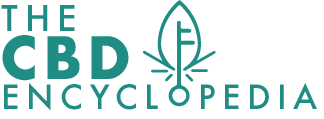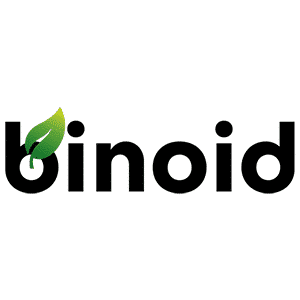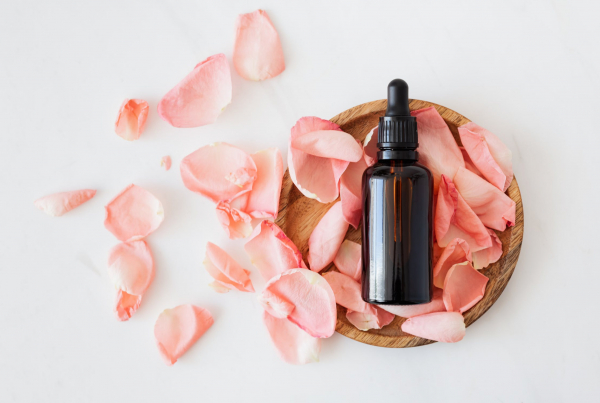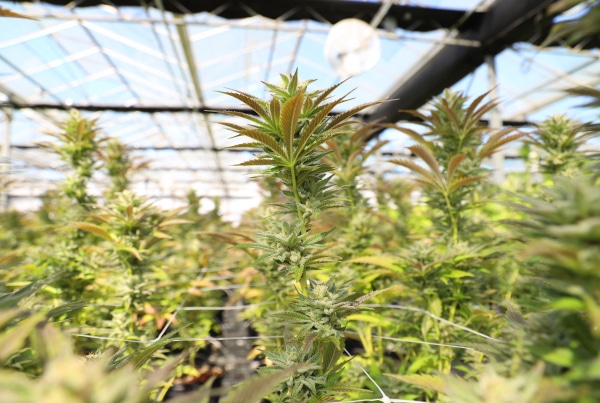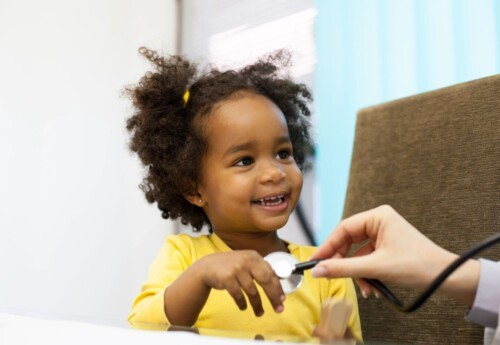
The application of CBD for children’s health has been controversial. Some argue that the cannabis-related (hemp) origin of the compound makes it unsuitable for children. However, a growing number of parents have found CBD effective against debilitating conditions like epilepsy, providing relief where pharmaceuticals have failed.
Ultimately, existing data on CBD is not yet sufficiently strong to prove that it’s safe for use in children. Since long before cannabis legalization, people around the globe have been using CBD as an alternative to medicines. Cannabidiol is gaining a reputation as an effective and efficient way to take charge of your health. There are many companies online that provide top-notch CBD products, which manage your wellness and keep you and your body balanced.
The growing popularity of CBD for wellness has brought with it the question of the safety and efficacy of CBD for kids. Its antispasmodic and neuroprotective effects are well-documented in children, yet many physicians (and parents) are reluctant to administer CBD to children. As CBD becomes more prevalent in mainstream health and wellness, many have raised doubts about cannabidiol for kids.
While there are some valid concerns, the benefits of CBD likely outweigh the risks for many children suffering from chronic illness. Here, we’ll examine whether or not cannabidiol can be beneficial for children. We’ll discuss the science of CBD in pediatric medicine before assessing the conditions CBD might benefit, and where it might not. If your child is suffering from a chronic illness or mental health condition, CBD may be worth looking into.
Key Takeaways
- There isn’t conclusive evidence that demonstrates CBD to be safe for children—but the converse is also true
- Studies have shown that CBD can make a meaningful (and potentially dramatic) difference in the lives of children suffering from chronic illnesses
- Take the same precautions with CBD for kids as you would with any other medication
Will CBD Intoxicate My Child?
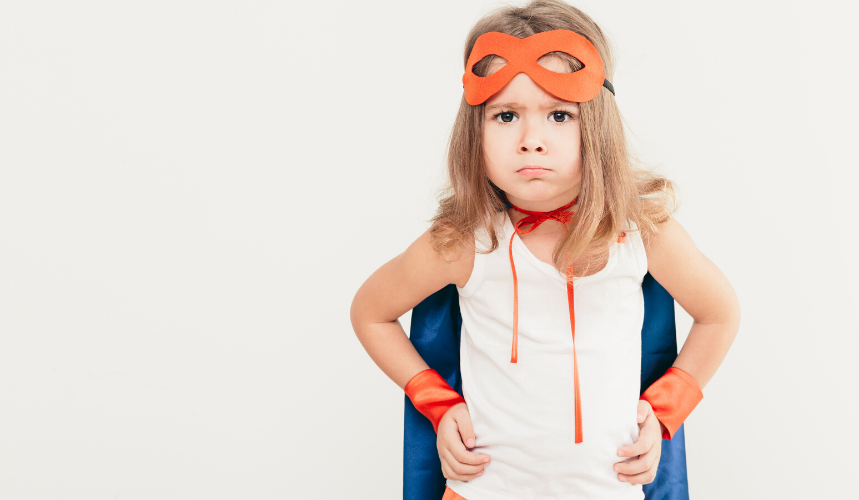
Many parents worry that CBD will cause their child to become high like THC. While the confusion is understandable, CBD has very different effects than THC. CBD is proven to be non-psychoactiveand doesn’t interfere with perception in the same way marijuana does.
CBD will not cause your child to feel impaired, even at high doses. CBD can enhance mood, regulate sensory processing, prevent seizures, improve sleep, and so much more. These applications extend to children as well, though many parents are hesitant to experiment with their children’s health, which we support.
While CBD can be used to help treat illness in children, every parent should make their own decision concerning their child’s wellness. We will limit our discussion here to the use of CBD for children with chronic illnesses like epilepsy, congenital heart disease, cancer, spina bifida, anxiety, genetic disorders, and other conditions. While some parents may choose to administer CBD to children as a prophylactic, our discussion here concerns symptom and care management plans for children.
Is CBD Safe For Children?

This question is difficult to answer conclusively because there is no long-term data to demonstrate safety or potential risks. That said, much of our understanding of the health effects of CBD come from early studies on children with drug-resistant epilepsy. The compound was found to ease seizures, reduce pain and symptoms like vomiting, and considerably improve quality of life for hundreds of children.
Pediatricians aren’t all in agreement yet when it comes to CBD for kids, but the evidence for its safety and efficacy appears sufficiently strong for the pharmaceutical industry. A synthetic version of CBD called Epidiolex is currently undergoing clinical trials as a treatment for epilepsy. Personally, we prefer to keep it plant-based, but the existence of Epidiolex (and the support it’s received from the FDA) is promising.
Decisions around health and wellness are very personal. When picking out the best wellness products for ourselves and our children, we want to choose safe products that offer a healthier life.
Since CBD does not carry any risk of overdose or dependence and does not induce impairment, we feel it is reasonable (and even beneficial) for an adult caregiver to decide to give it to a child to help treat medical symptoms. Compared to some of the prescription drugs available to children, high-quality CBD is likely just as safe—perhaps even safer.
How Can CBD Help My Child?
CBD is a non-psychoactive compound derived from hemp, a cousin of marijuana. CBD acts on the endocannabinoid system, a network of receptors and chemical messengers shared by all mammals (and many other vertebrates).
When CBD is consumed, it interacts with receptors within the endocannabinoid system. Called CB1 and CB2 receptors, these molecular buttons act as controls for many of your body’s processes. From sleep and wakefulness to hunger to pain perception to body temperature, there is hardly a single bodily function that isn’t affected by the endocannabinoid system in some way.
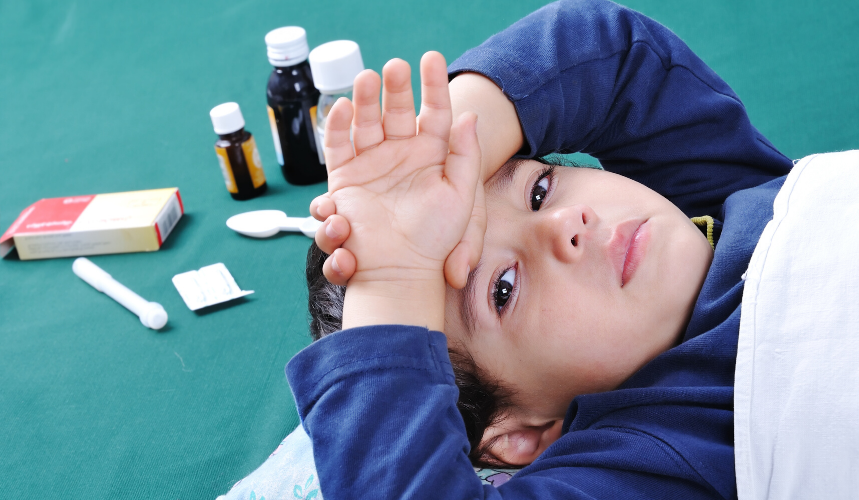
Because the endocannabinoid system has the power to regulate so many different body processes, the use of CBD for kids can be very helpful for many diverse conditions. The compound helps to reduce inflammation throughout the brain and body, alleviate pain, cease spasms, and help to regulate sensory processing. These properties are all possible in both adults and children, alike.
Since CBD has few to no side effects (with sleepiness being the most commonly reported concern), it carries little risk of an adverse reaction, even in sensitive children.
CBD For Kids: Mental Health Applications
CBD exerts powerful effects on the endocannabinoid system and, by extension, the brain. Studies have shown that CBD for kids can help to improve focus, decrease anxiety, and alleviate depression. These symptoms can hamper healthy development in kids when left unaddressed, and many parents find that CBD is an important part of their children’s wellness routines.

Alleviate stress and anxiety
CBD can help to reduce anxiety in children by reducing the activity of the body’s stress response. It could also help with other symptoms often associated with anxiety like gastrointestinal distress, compulsive behavior, and negative behaviors. This effect of CBD for kids may be especially helpful in encouraging healthy neural, motor, and social development.
Regulate activity in the brain
Neural over-excitement is often implicated in illnesses like epilepsy. Current research demonstrates that local bursts of intense activity in certain parts of the brain may be at the root of other conditions as well. These may include ADD, ADHD, OCD, autism, and other neurodiverse conditions. While CBD will not cure any of these conditions (and, we should be clear, that is not the goal—neurodiverse does not mean defective or deficient), emerging research suggests that CBD may help to reduce the severity of symptoms and help neurodiverse children to better regulate sensory input, emotional expression, and communication.
Improve focus
Many parents have found that CBD helps to improve focus and attention in their children. This is true even where stimulant medications and alternative therapies have failed. While the mechanisms of this effect aren’t yet fully understood, CBD for kids may help to regulate sensory input and processing. This, in turn, may help kids focus more attentively. CBD can be especially attractive for this purpose because it does not carry the potential digestive, renal, and neurological concerns that stimulant medications often cause.
CBD For Kids With Epilepsy
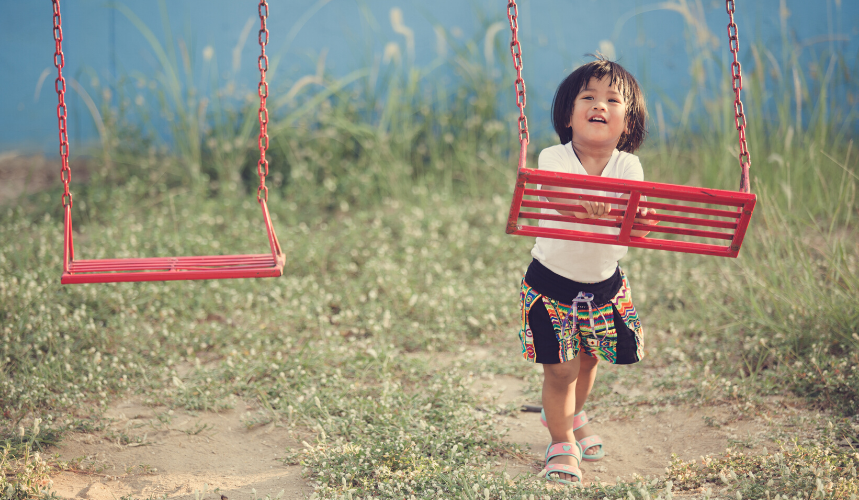
Epilepsy is a neurological condition often diagnosed in childhood, although it can also be developed later in life. While the symptoms can vary from altered sensations to grand mal seizures, the root cause of epilepsy can be traced to irregular activity in the brain.
In the brain of a child with epilepsy, neurons fire unpredictably, quickly, and out of control, causing seizures and wreaking havoc on the mind and body. For parents, watching a child suffer repeated seizures can be devastating. Even worse, many prescription medications cause sedation and loss of awareness—or just plain don’t work at all.
CBD has been found to be very effective against even the most drug-resistant cases of epilepsy. In fact, much of the first research into the effects of CBD comes from studies conducted on epileptic children. It is true that THC can also be beneficial for some kids with epilepsy, but many families have found that CBD alone drastically reduces—or even eliminates—seizures. These effects appear most pronounced when CBD is taken as a daily prophylactic rather than as needed. This indicates that CBD helps to prevent seizures through neuroprotectant activity.
A Brief Note About CBD For Kids & Young Adults
There is a lot of potentially exciting research about the applicability of CBD for children’s health and wellness. The data is backed up by promising anecdotal reports from parents and kids, alike. That said, many are still reluctant to give their children CBD, and we understand that. Our goal is to help you make the decision you feel is best for your child, with the most current information available to help guide you.
It is true that there isn’t conclusive evidence that demonstrates CBD to be safe for children—but the converse is also true. What studies have shown is that CBD can make a meaningful (and potentially dramatic) difference in the lives of children suffering from chronic illnesses. If your child is struggling with severe symptoms, the potential benefits of trying CBD for kids likely outweigh the risks.
If you do choose to use CBD as a part of your child’s wellness routine, we encourage you to do a couple of things. First, choose products made with quality ingredients and batch-tested by a third-party lab. Second, we suggest that you take the same precautions with CBD for kids as you would with any other medication.
Keep bottles, bags, and other containers out of reach when not in use. Administer each dose personally (especially for tempting snacks like gummies) to avoid any potential incidents with taking too much (or too little). Finally, and perhaps most importantly, monitor your child’s condition until you become familiar with the effects, adjusting dosage if necessary.
